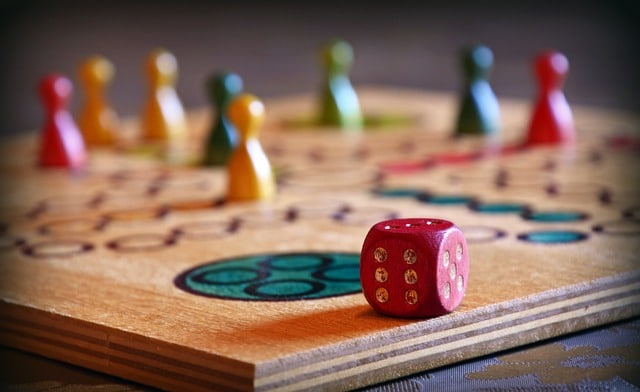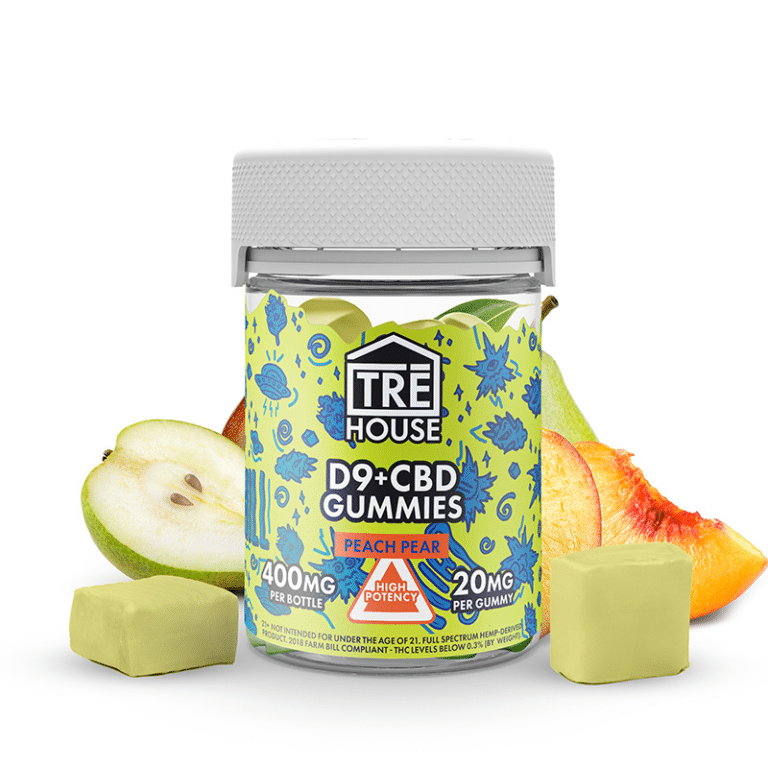Fun number games can brighten up anyone’s day! Most of us use numbers every day, from checking time to counting money.
But who says learning about numbers has to feel like work? Let’s turn those numbers into something enjoyable.
We’ve gathered some of the best fun number games that make math skills more exciting for everyone.
These games work well at home, in classrooms, or even during your free time online.
Whether you’re a parent looking to help your kids with math or someone who just wants to keep their minds sharp, there’s a perfect game waiting for you.
Classic Fun Number Games
1. Bingo

Players match the numbers on their cards with those called out. It’s a fun way to learn and recognize numbers quickly.
How to Play: Each player gets a Bingo card with a grid of numbers. The caller draws numbers randomly, and players mark the numbers on their cards if they match. The first to complete a row, column, or diagonal shouts “Bingo!” and wins.
Benefits: Enhances number recognition and quick thinking.
Pro Tip: Add a math twist by requiring players to solve a problem before marking the number.
2. Hopscotch Math

Players hop on squares with math answers, solving problems while playing. It combines physical activity with learning math.
How to Play: Draw a hopscotch grid and write numbers or equations in each square. Players solve the math problem in the square they land on.
Benefits: Encourages physical activity and strengthens problem-solving skills.
Pro Tip: Adjust difficulty levels by using multiplication or division for older kids.
3. Math War
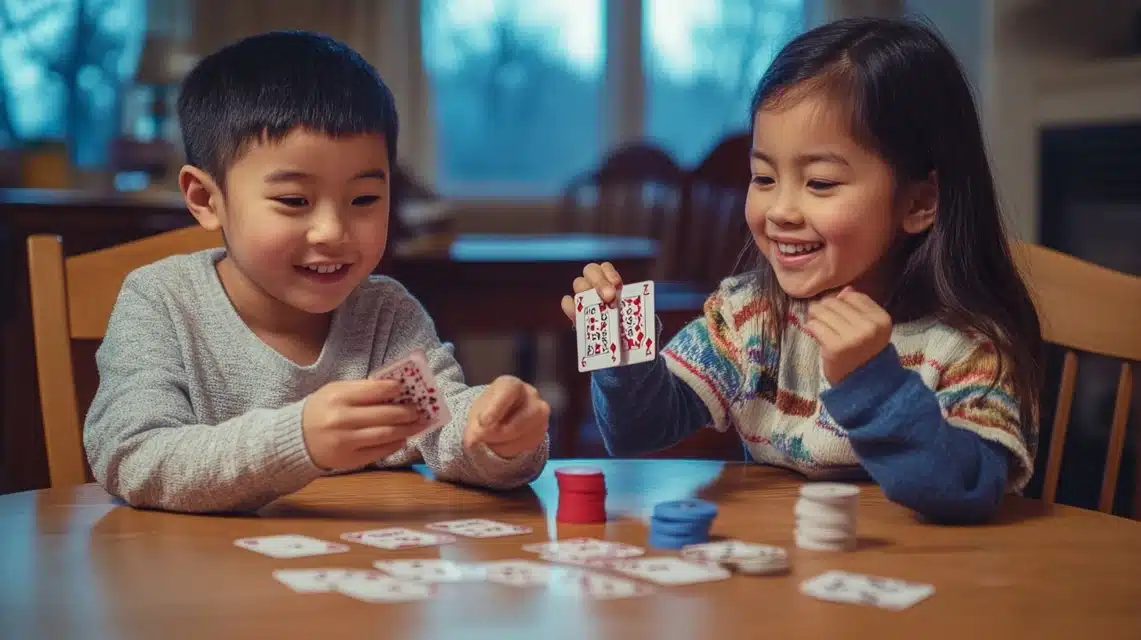
A card game where players draw cards, solve math problems, and compete to win. It’s great for practicing addition, subtraction, and more.
How to Play: Players draw two cards and solve a math equation using the numbers. The player with the highest or fastest correct answer wins the round.
Benefits: Improves arithmetic skills and fosters healthy competition.
Pro Tip: Use a deck with larger numbers for advanced players.
4. Connect Four Numbers
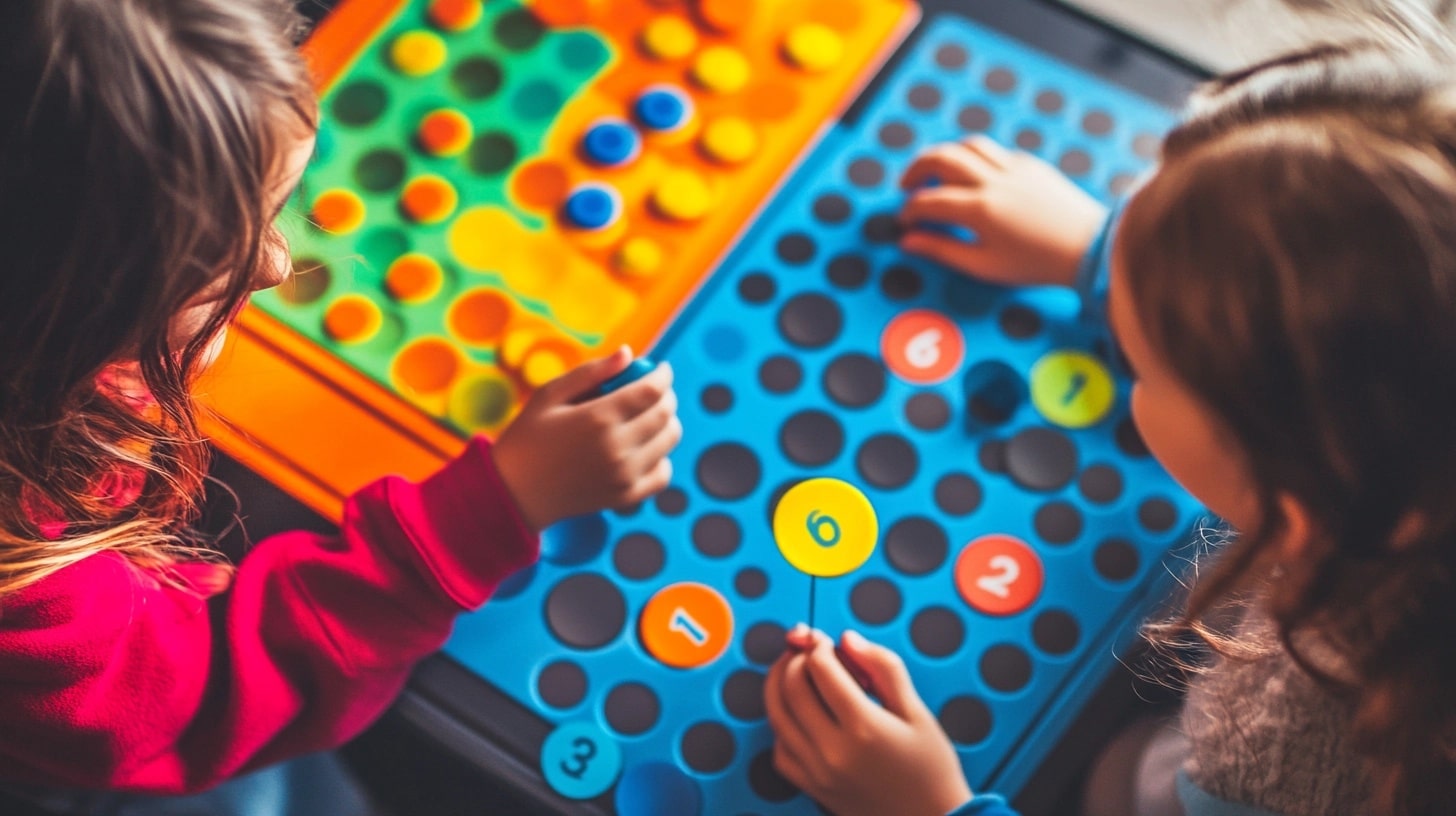
Players drop discs into a grid to make number patterns or sequences. It helps with strategy and understanding number order.
How to Play: Players alternate dropping numbered discs into a grid, aiming to align four in a row. Discs can have numerical patterns, such as even numbers or multiples of a chosen value.
Benefits: Enhances pattern recognition and logical thinking.
Pro Tip: Customize by adding specific math challenges before placing a disc.
5. Number Guessing Game

One person thinks of a number, and others guess it using clues like “higher” or “lower.” It builds logic and guessing skills.
How to Play: One player thinks of a number within a range. Others guess, receiving feedback like “higher” or “lower” until someone gets it right.
Benefits: Develop logical reasoning and estimation skills.
Pro Tip: Introduce penalties for incorrect guesses to raise the stakes.
Fun Number Games for the Classroom
6. Math Jeopardy

Teams answer math questions in a quiz format. They earn points for each correct answer while practicing different math skills.
How to Play: Create categories like “Addition,” “Fractions,” or “Word Problems,” and assign point values to questions. Teams compete to solve questions and earn points.
Benefits: Encourages teamwork and reinforces diverse math skills.
Pro Tip: Use interactive boards or projectors for an engaging experience.
7. Number Line Jump

Students jump on a large number line to show the answer to a math problem. It makes math fun and active.
How to Play: Lay a number line on the floor. Call out equations, and students jump to the correct answer on the line.
Benefits: Reinforce concepts like addition, subtraction, and negative numbers.
Pro Tip: Incorporate fractions or decimals for advanced learners.
8. Roll and Solve

Players roll dice, add or multiply the numbers, and solve problems to earn points. It’s a quick way to practice math.
How to Play: Students roll dice, add or multiply the numbers, and solve equations to earn points.
Benefits: Boosts arithmetic fluency and keeps students engaged.
Pro Tip: Use multi-sided dice for variety and complexity.
9. Math Scavenger Hunt

Students search for hidden math problems in the classroom, solve them, and move on to the next clue. It’s exciting and interactive.
How to Play: Hide math problems or clues around the classroom. Students solve each problem to find the next location.
Benefits: Promotes active learning and collaboration.
Pro Tip: Include riddles that combine math with logical thinking.
10. Equation Relay Race

Teams solve math problems in a race format, promoting teamwork and fast thinking while making learning competitive and fun.
How to Play: Divide students into teams. Each team solves a series of equations, passing the baton to the next member after each correct answer.
Benefits: Encourages teamwork and fast problem-solving.
Pro Tip: Time the races and offer small rewards to winning teams.
Fun Number Games at Home
11. Number Card Matching
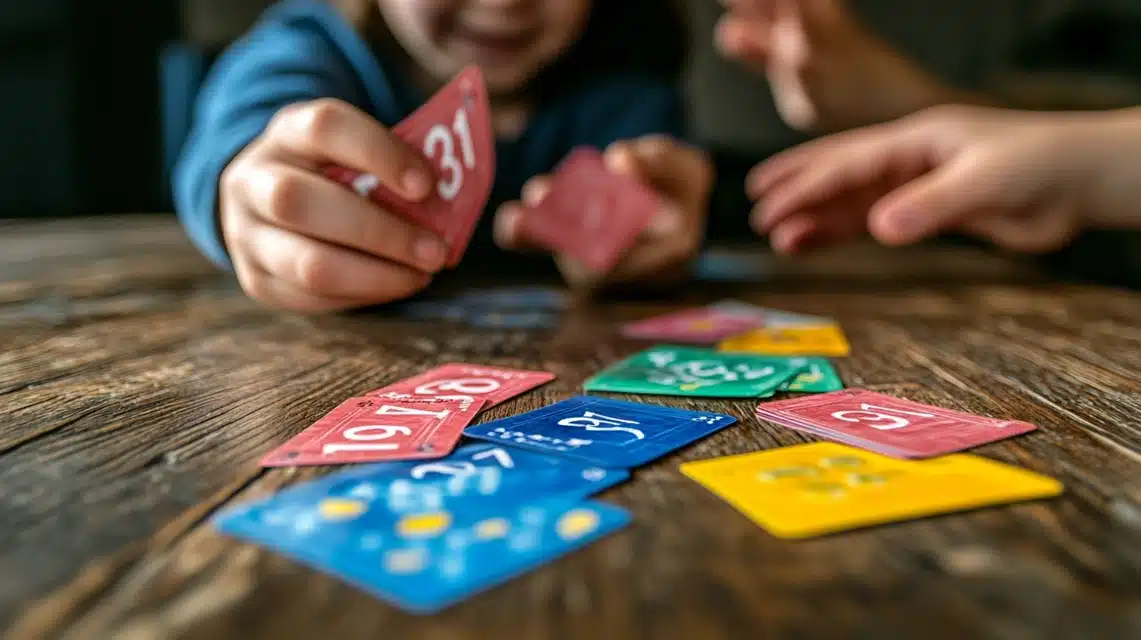
Players match numbers with math problems or patterns, improving memory and math understanding.
How to Play: Create cards with numbers and corresponding equations, patterns, or dot clusters. Players flip cards to find matches.
Benefits: Improves memory, matching skills, and basic arithmetic.
Pro Tip: Use higher numbers or fractions for older students.
12. Bottle Cap Math Toss
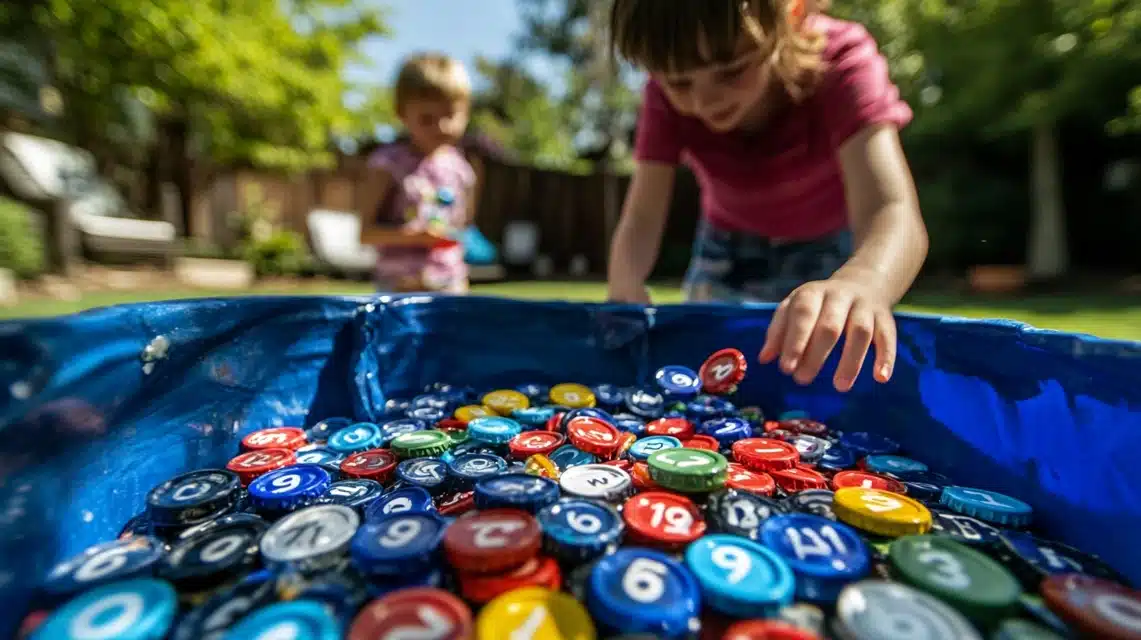
Players toss numbered caps into a container and solve math problems using the numbers, mixing math and physical activity.
How to Play: Write numbers on bottle caps, toss them into a container, and draw a few caps to form a math equation. Players solve the equation to score points.
Benefits: Encourages creativity and reinforces math operations.
Pro Tip: Add colored caps with special rules, like bonus points or penalties.
13. Odd or Even Sorting
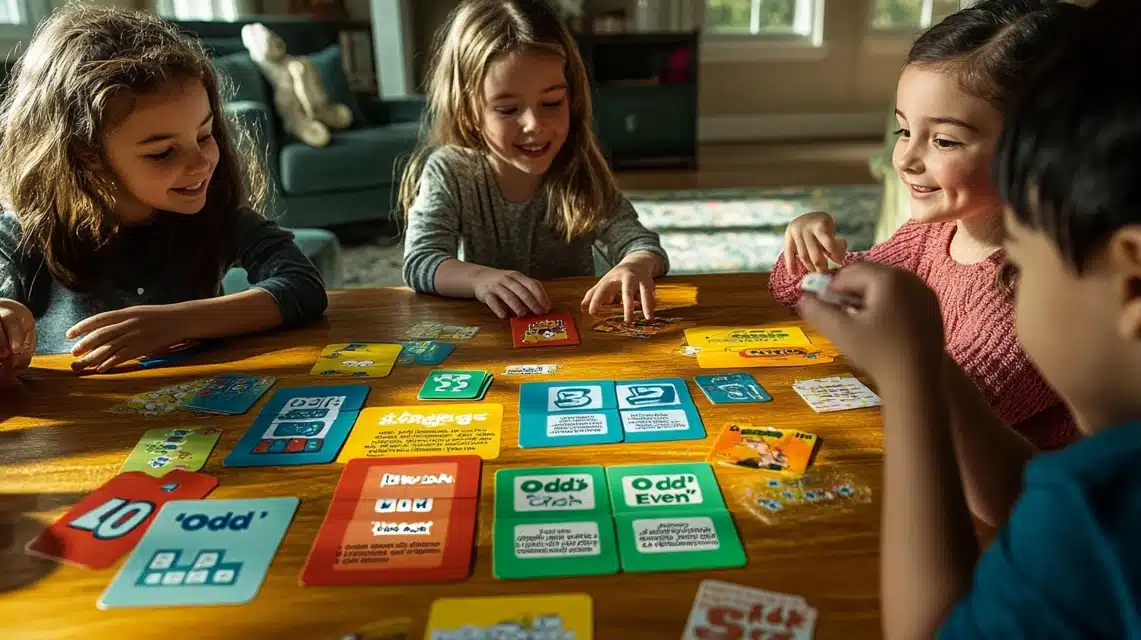
A sorting game where players categorize numbers into odd or even groups, improving number recognition and basic math skills.
How to Play: Players receive a set of numbers and sort them into “Odd” or “Even” categories. The player who correctly sorts the most numbers wins.
Benefits: Reinforces the concept of odd and even numbers and builds confidence in basic arithmetic.
Pro Tip: Introduce a timer or bonus points for sorting quickly and accurately.
14. Build-a-Number Tower
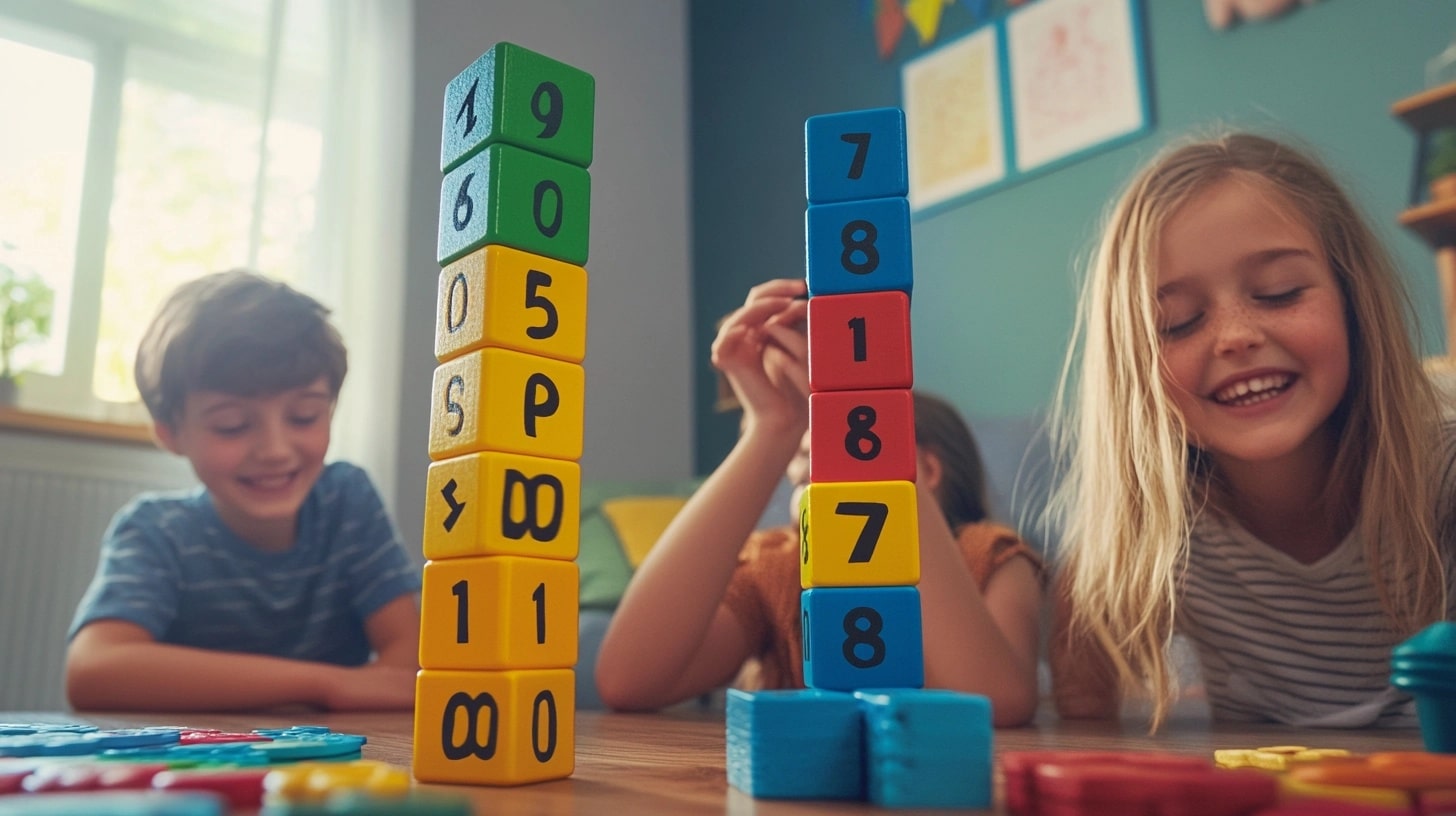
A game where players use blocks or cards with digits to create numbers based on prompts.
How to Play: Players arrange blocks or cards to create the largest or smallest number as prompted, such as “Make a three-digit number divisible by 5.”
Benefits: Develops understanding of place value, number magnitude, and logical thinking.
Pro Tip: Use a timer to add excitement and test quick decision-making.
15. Family Budget Game
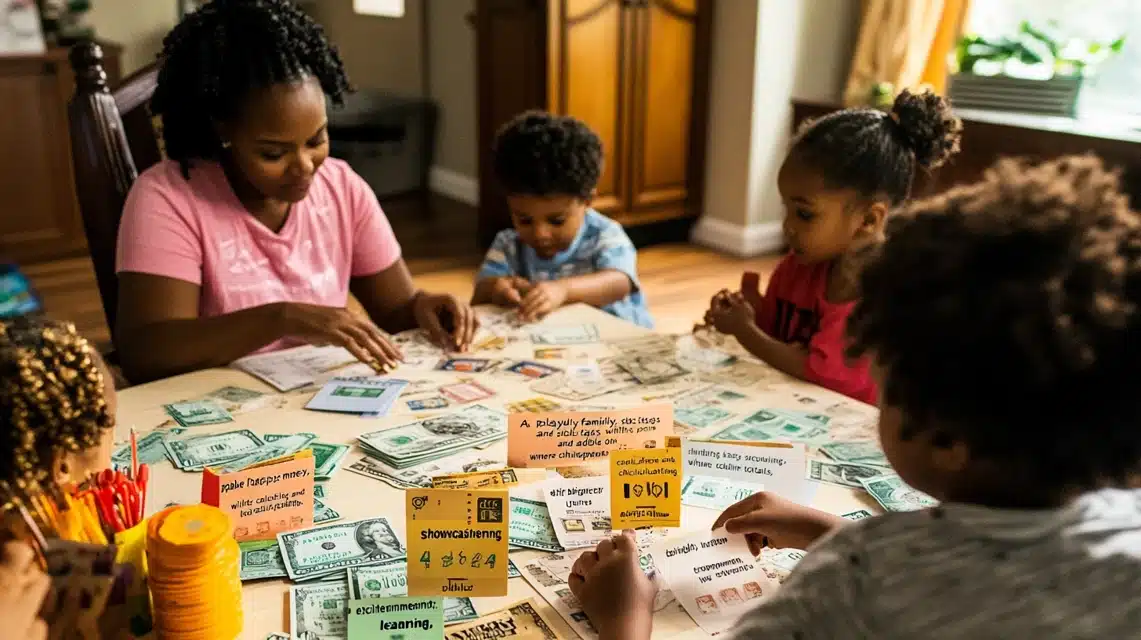
Overview: A pretend shopping game using fake money to teach budgeting and basic math skills.
How to Play: Players “shop” from a list, adding item prices and staying within a set budget. The goal is to complete the list without overspending.
Benefits: Improves budgeting, addition, and subtraction while introducing financial concepts.
Pro Tip: Add taxes or discounts for older players to make the game more challenging.
Fun Number Games for Adults
16. Numerical Trivia

Players answer fun questions about numbers in trivia style, mixing math with general knowledge.
How to Play: Prepare trivia questions involving numbers, such as historical dates, statistics, or math-related facts. Players or teams answer to earn points.
Benefits: Engages players with math and general knowledge.
Pro Tip: Incorporate pop culture or sports stats to keep it interesting.
17. Rummikub

Players create sets or sequences using numbered tiles, encouraging logical thinking and strategy.
How to Play: Players use numbered tiles to form sequences or sets, earning points for each valid combination. The first to use all their tiles wins.
Benefits: Enhances pattern recognition and strategic planning.
Pro Tip: Play in teams to make it more interactive.
18. Mental Math Challenges

Players solve math problems in their head within a time limit, improving speed and focus.
How to Play: Set a timer and present players with math problems. They solve as many as possible before time runs out.
Benefits: Improves speed, accuracy, and mental agility.
Pro Tip: Introduce penalties for incorrect answers to increase the stakes.
19. Estimation Jar Game

Players guess how many items are in a jar, practicing estimation and logical thinking.
How to Play: Fill a jar with small items (beans, candies, etc.) and have players estimate the total count. The closest guess wins.
Benefits: Encourages logical thinking and estimation.
Pro Tip: Use themed items (e.g., candy canes for Christmas) to make it festive.
20. Countdown Numbers Game
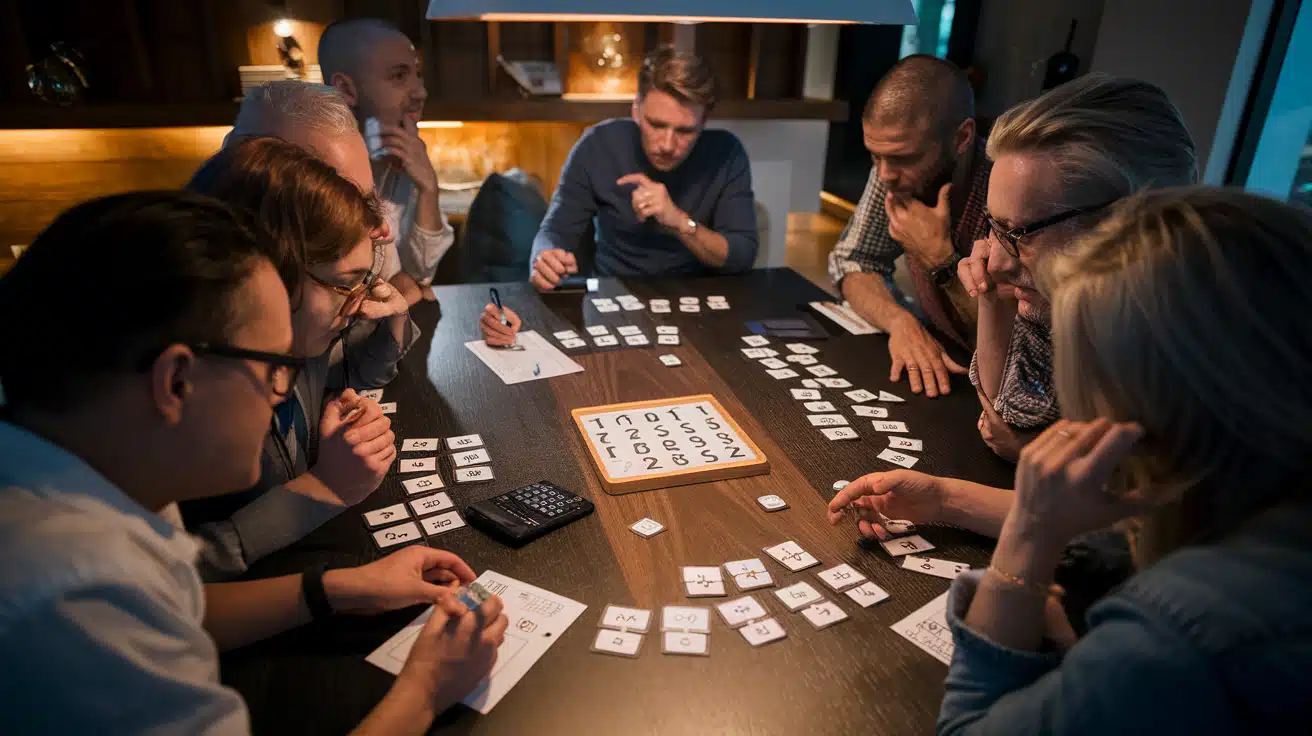
Players combine given numbers to reach a target, using math skills and strategic thinking.
How to Play: Players are given random numbers and a target number. They use math operations to reach the target as quickly as possible.
Benefits: Helps improve math skills and strategic thinking.
Pro Tip: Use larger or more complex numbers for advanced players.
Online Fun Number Games for All Ages
21. 2048

A simple yet addictive puzzle game where players combine matching tiles to reach the target number, 2048.
How to Play: Swipe tiles in any direction to combine matching numbers. Each move spawns a new tile. Keep combining until you reach 2048 or run out of moves.
Benefits: Improves logical thinking, strategic planning, and decision-making skills.
Target Audience: Teens and adults who enjoy puzzle and strategy games.
22. Cool Math Games

An online platform featuring math-based games like Math Lines and Number Ninja, offering fun challenges for all ages.
How to Play: Visit the platform, select a category (e.g., logic, arithmetic), and pick a game to play. Follow on-screen instructions for gameplay.
Benefits: Makes math practice enjoyable and helps improve problem-solving and math fluency.
Target Audience: Kids, teens, and adults seeking engaging math games.
23. Sudoku Online

A logic puzzle game where players fill a grid with numbers, ensuring no repetition in rows, columns, or sub-grids.
How to Play: Choose a difficulty level. Fill the grid by deducing the correct placement of numbers based on existing clues.
Benefits: Enhances critical thinking, pattern recognition, and concentration.
Target Audience: All ages, from beginners to experienced puzzle enthusiasts.
24. Khan Academy Kids

An interactive app offering math games, lessons, and activities for young learners to develop foundational skills.
How to Play: Download the app, set up a profile, and explore tailored lessons, activities, and games for your child’s age and skill level.
Benefits: Encourages independent learning through colorful visuals and interactive tasks.
Target Audience: Preschoolers and early elementary children.
25. Prodigy Math Game

A fantasy-themed math game where players solve problems to progress through quests, battles, and storylines.
How to Play: Create an account, select a character, and start solving math challenges to earn rewards and unlock new levels.
Benefits: Engages players with a mix of math practice and adventure, covering various math topics.
Target Audience: Kids, teens, and even adults wanting to practice math in an exciting way.
26. Math Playground

A comprehensive platform with interactive math games, puzzles, and logic challenges for various skill levels.
How to Play: Choose from categories like addition, multiplication, or logic puzzles. Play directly on the site following the provided instructions.
Benefits: Improves math fluency, problem-solving, and logical thinking.
Target Audience: Kids, teens, and adults interested in fun, engaging math exercises.
27. Math Blaster

A space-themed adventure game where players solve math problems to complete missions and defeat enemies.
How to Play: Create a character, navigate through missions, and solve math challenges to earn points and progress in the game.
Benefits: Strengthens math skills in an exciting, action-packed environment.
Target Audience: Kids and teens who enjoy adventure and problem-solving games.
28. Number Drop

A Tetris-like puzzle game where players must solve math equations to place blocks and avoid reaching the top.
How to Play: Solve math problems on falling blocks to clear them before they stack too high.
Benefits: Boosts arithmetic speed, logical thinking, and hand-eye coordination.
Target Audience: Players of all ages who enjoy fast-paced, math-focused challenges.
29. Kakuro Online

A number puzzle game similar to Sudoku but with mathematical elements, where players fill grids with numbers to match given sums.
How to Play: Complete the grid by ensuring each row and column adds up to the given totals, without repeating numbers.
Benefits: Develop logical thinking, concentration, and arithmetic skills.
Target Audience: Teens and adults who enjoy challenging number puzzles.
30. BrainPop Math Games

A collection of math games that combine fun with learning, covering topics like fractions, decimals, and algebra.
How to Play: Select a game, follow the interactive instructions, and solve math problems to progress through the challenges.
Benefits: Reinforces classroom learning in an engaging, game-based format.
Target Audience: Students of all ages looking for interactive math practice.
Conclusion
Now you know how to make numbers fun!
We showed you many easy games you can play anywhere – at home, in class, or on your computer.
Each game is simple to start and works well for different groups. If you want to help kids learn, try Bingo or jumping hopscotch with math.
For grown-ups, you might like number guessing or solving quick math puzzles.
Want to play on your phone or computer? Try 2048 or Sudoku.
The best thing? You don’t need special tools or skills. Just pick any game from our list and start playing.
Soon, you’ll see that numbers can be your friends!
Frequently Asked Questions
How can number games help improve math skills?
Number games build math skills by combining practice with play. They help with counting, quick thinking, and problem-solving while making learning feel natural and fun.
Are there a number of games suitable for family game nights?
Yes! Games like Bingo, Number War card games, and dice games work great for family fun. Everyone can join in, from kids to grandparents.








